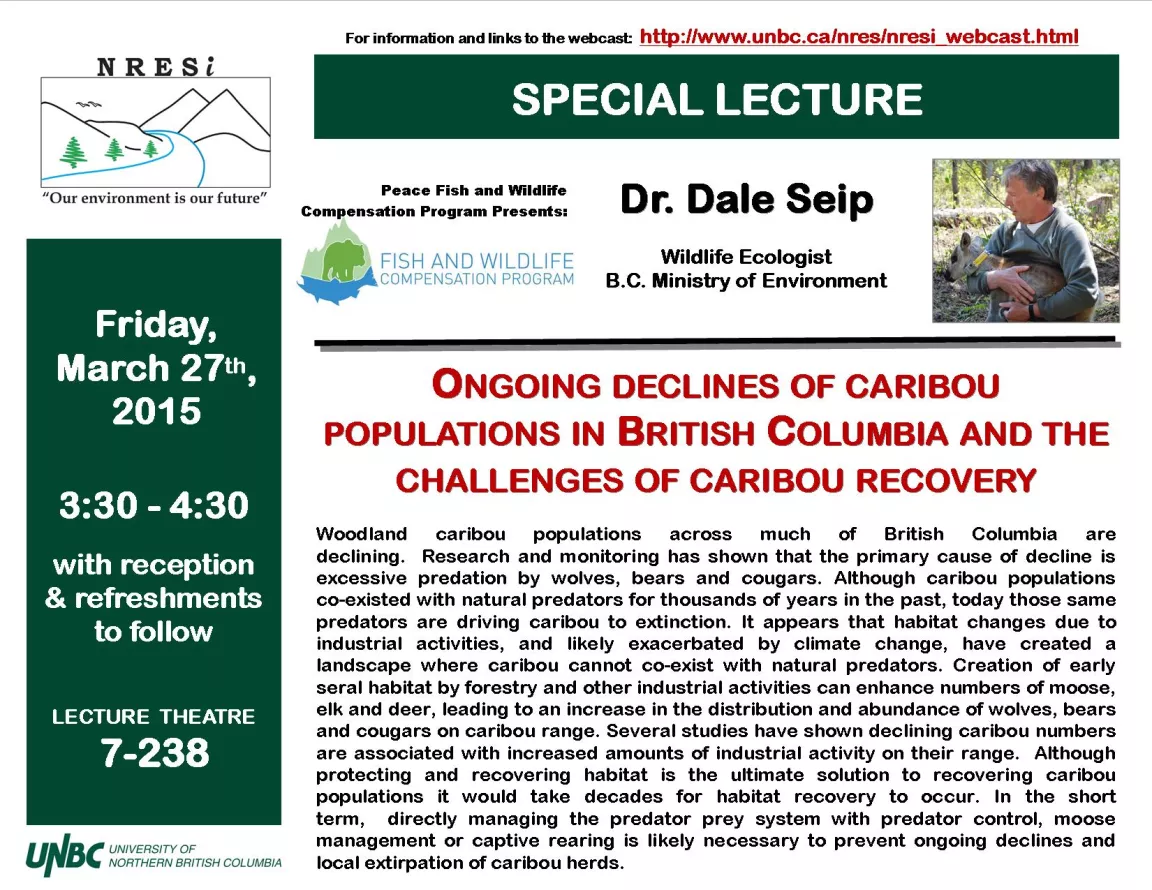NRESi Peace Fish & Wildlife Compensation Program Special Lecture: Dr. Dale Seip, Wildlife Ecologist, B.C. Ministry of Environment - Ongoing declines of caribou populations in BC and the challenges of caribou recovery

Special Lecture
Presented by NRESi in partnership with the Peace Fish & Wildlife Compensation Program
Woodland caribou populations across much of British Columbia are declining. Research and monitoring has shown that the primary cause of decline is excessive predation by wolves, bears and cougars. Although caribou populations co-existed with natural predators for thousands of years in the past, today those same predators are driving caribou to extinction. It appears that habitat changes due to industrial activities, and likely exacerbated by climate change, have created a landscape where caribou cannot co-exist with natural predators. Creation of early seral habitat by forestry and other industrial activities can enhance numbers of moose, elk and deer, leading to an increase in the distribution and abundance of wolves, bears and cougars on caribou range. Several studies have shown declining caribou numbers are associated with increased amounts of industrial activity on their range. Although protecting and recovering habitat is the ultimate solution to recovering caribou populations it would take decades for habitat recovery to occur. In the short term, directly managing the predator prey system with predator control, moose management or captive rearing is likely necessary to prevent ongoing declines and local extirpation of caribou herds.
Contact Information
Leanne Elliott, NRESi Research Manager
leanne.elliott@unbc.ca
250-960-5018